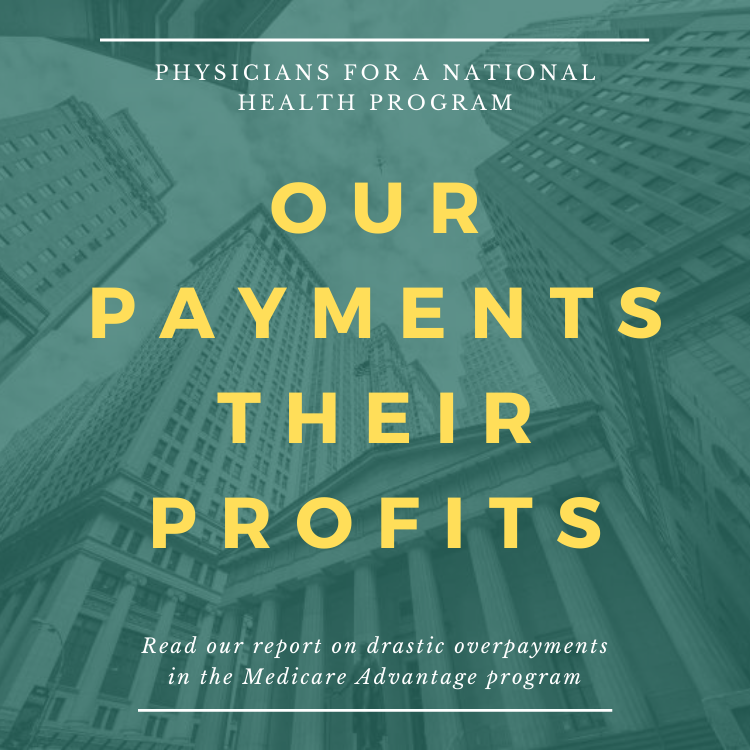One Nation, Uninsured
By Paul Krugman
The New York Times
June 13, 2005
Harry Truman tried to create a national health insurance system. Public opinion was initially on his side: Jill Quadagno’s book “One Nation, Uninsured” tells us that in 1945, 75 percent of Americans favored national health insurance. If Truman had succeeded, universal coverage for everyone, not just the elderly, would today be an accepted part of the social contract.
But Truman failed. Special interests, especially the American Medical Association and Southern politicians who feared that national insurance would lead to racially integrated hospitals, triumphed.
Sixty years later, the patchwork system that evolved in the absence of national health insurance is unraveling. The cost of health care is exploding, the number of uninsured is growing, and corporations that still provide employee coverage are groaning under the strain.
So the time will soon be ripe for another try at universal coverage. Public opinion is already favorable: a 2003 Pew poll found that 72 percent of Americans favored government-guaranteed health insurance for all.
But special interests will, once again, stand in the way. And the big debate among would-be reformers is how to deal with those interests, especially the insurance companies. These companies played a secondary role in Truman’s failure but have since become a seemingly invincible lobby.
Let’s ignore those who believe that private medical accounts – basically tax shelters for the healthy and wealthy – can solve our health care problems through the magic of the marketplace. The intellectually serious debate is between those who believe that the government should simply provide basic health insurance for everyone and those proposing a more complex, indirect approach that preserves a central role for private health insurance companies.
A system in which the government provides universal health insurance is often referred to as “single payer,” but I like Ted Kennedy’s slogan “Medicare for all.” It reminds voters that America already has a highly successful, popular single-payer program, albeit only for the elderly. It shows that we’re talking about government insurance, not government-provided health care. And it makes it clear that like Medicare (but unlike Canada’s system), a U.S. national health insurance system would allow individuals with the means and inclination to buy their own medical care.
The great advantage of universal, government-provided health insurance is lower costs. Canada’s government-run insurance system has much less bureaucracy and much lower administrative costs than our largely private system. Medicare has much lower administrative costs than private insurance. The reason is that single-payer systems don’t devote large resources to screening out high-risk clients or charging them higher fees. The savings from a single-payer system would probably exceed $200 billion a year, far more than the cost of covering all of those now uninsured.
Nonetheless, most reform proposals out there – even proposals from liberal groups like the Century Foundation and the Center for American Progress – reject a simple single-payer approach. Instead, they call for some combination of mandates and subsidies to help everyone buy insurance from private insurers.
Some people, not all of them right-wingers, fear that a single-payer system would hurt innovation. But the main reason these proposals give private insurers a big role is the belief that the insurers must be appeased.
That belief is rooted in recent history. Bill Clinton’s health care plan failed in large part because of a dishonest but devastating lobbying and advertising campaign financed by the health insurance industry – remember Harry and Louise? And the lesson many people took from that defeat is that any future health care proposal must buy off the insurance lobby.
But I think that’s the wrong lesson. The Clinton plan actually preserved a big role for private insurers; the industry attacked it all the same. And the plan’s complexity, which was largely a result of attempts to placate interest groups, made it hard to sell to the public. So I would argue that good economics is also good politics: reformers will do best with a straightforward single-payer plan, which offers maximum savings and, unlike the Clinton plan, can easily be explained.
We need to do this one right. If reform fails again, we’ll be on the way to a radically unequal society, in which all but the most affluent Americans face the constant risk of financial ruin and even premature death because they can’t pay their medical bills.
http://www.nytimes.com/2005/06/13/opinion/13krugman.html?hp
With today’s announcement that Paul Krugman is the 2008 recipient of the Nobel Prize, it seems appropriate to distribute once again one if the most important articles he has ever written, and the message could not be more timely.
Although economics is considered to be an amoral science, Paul Krugman and Uwe Reinhardt have proven to us that even economists can have a heart.
Celebrate Paul Krugman’s award by sharing his single payer article with others. Economics with a heart. Now isn’t that something.
